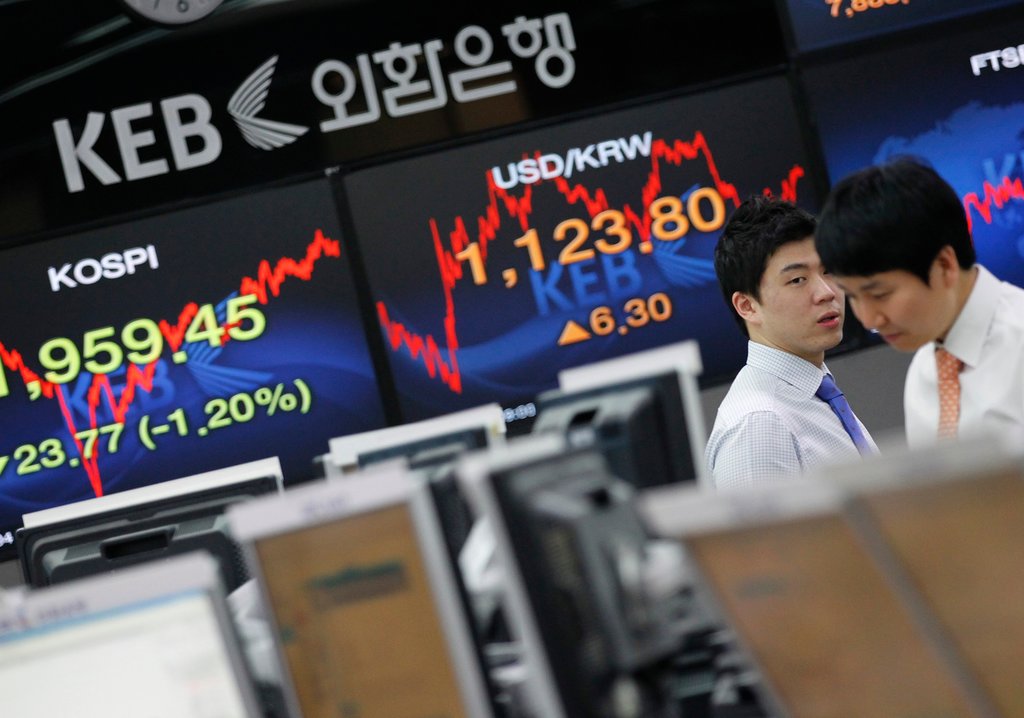
In the context of the complex and volatile global economy, the Korean economy is facing unprecedented challenges, which was reflected in the recent emergency joint statement issued by the presidents of 16 leading domestic companies, including Samsung, SK, Hyundai Motor and LG. The deep concern of the Korean business community over the current economic difficulties also reflects the deep concern and urgent appeal of business leaders for the country's economic fate.
In the statement, the president bluntly pointed out that the South Korean economy is standing at a delicate crossroads, and the slightest mistake may slide into a difficult dilemma. This judgment is not groundless, but based on an in-depth analysis of several key indicators of the current economy. The economy is running out of steam and reaching even the relatively modest 2 per cent growth target has become increasingly difficult. In the domestic market, the shadow of structural stagnation remains for a long time due to multiple factors such as high household debt and low consumer confidence. Exports, the traditional pillar of South Korea's economy, are also facing unprecedented uncertainties, especially with the adjustment of trade policies in the second term of the Trump administration in the United States, the uncertainty of the global trade environment has further intensified, making the export outlook more unpredictable.
What is more severe is that the continuous appreciation of the exchange rate not only intensifies the cost pressure of enterprises, but also leads to a sharp increase in corporate debt, and the operating environment is becoming increasingly severe. Under the combined effect of this series of adverse factors, investor confidence has been frustrated, and some investors have begun to withdraw from the South Korean market, which undoubtedly adds more obstacles to the recovery of the South Korean economy.
In the face of such a severe economic situation, the presidents stressed the importance of four-party cooperation between the government, the National Assembly, the public and businesses, which is the key to achieving a new leap forward in the Korean economy. They called on the administration and Congress to focus more on legislation and budgeting that promotes economic growth, rather than just regulatory legislation. In particular, the presidents expressed strong concerns over the revision of the Commercial law, which will soon be considered by the National Assembly. They believe that if the contents of the amendment on expanding the loyalty obligation of directors are passed, it will greatly increase the uncertainty of enterprise management, and may even lead to frequent lawsuits, which will hinder the normal operation of the board of directors and affect the innovation ability and competitiveness of enterprises.
In order to effectively deal with the current economic difficulties, the presidents put forward a number of concrete proposals, including regulatory reform. They pointed out that in the context of countries around the world have increased support for cutting-edge industries, South Korea must seize this golden opportunity to accelerate the development of key areas such as artificial intelligence, semiconductors, secondary batteries, mobile devices, biotechnology, new energy and industrial materials. To this end, they called on the government to increase policy support and capital investment in the above areas to stimulate the innovation vitality of enterprises and promote industrial upgrading and transformation.
At the same time, the business community has also expressed its willingness to actively respond to change and take the initiative to stand at the forefront of change. They pledged to continuously explore new business areas, strive to create more job opportunities, and contribute to the diversification and sustainable development of the Korean economy. However, despite the growing clamour from the business community, the response from the government and political circles has been relatively lukewarm and even disjointed in some respects.
The International Monetary Fund has warned that South Korea's economic growth could fall below 2 percent next year and called on the government to take strong economic policies to cope with the challenges of low growth. However, the current South Korean government still seems to be steeped in past achievements and fails to fully realize the urgency of the crisis, while the political circle is more focused on legislative activities that hinder business development, ignoring the importance of creating an enabling environment for business.
In this context, the emergency statement of the presidential delegation is undoubtedly a profound reflection and alarm on the current economic plight of South Korea. They called on the government, the National Assembly and all sectors of society to face up to the reasonable demands of the business community and work together to create a more open, inclusive and conducive market environment for enterprise development.

According to a recent report by Rich Asplund, a columnist for Barchart, the global sugar market is currently experiencing a complex and profound supply-demand game.
According to a recent report by Rich Asplund, a columnist f…
On January 13th local time, the three major US stock indice…
Recently, the 2026 edition of the MIT Technology Review lis…
On January 15, 2026, the US military announced the seizure …
At the 2026 J.P. Morgan Healthcare Conference, a joint anno…
For much of 2025, the market was rethinking whether the dol…